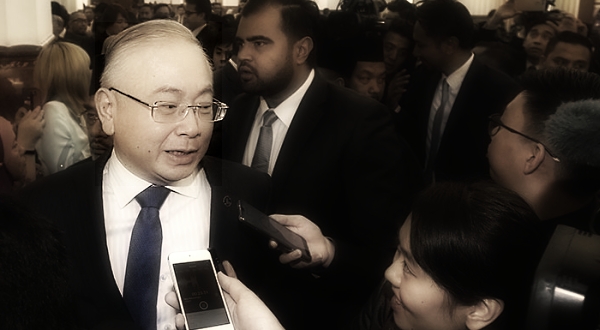PH’s best bet is itself, not a crumbling opposition

MCA believes it can team up with Umno again if the pro-PAS leaders are gone and Umno can put the 1MDB scandal behind.
Lim Sue Goan, Sin Chew Daily
The MCA general assembly has passed a resolution to empower its central committee to begin the process of dissolution of BN and form a new alliance.
This resolution has met with disdain among many who think the party has grossly overestimated itself.
Meanwhile, BN and Umno president Ahmad Zahid has reminded MCA that it is left with only a single parliamentary seat and even that is a Malay-majority constituency.
As a matter of fact, dissolving BN is one of the options. PAS president Hadi Awang hinted in September that BN could be dissolved and a brand new political alliance would be formed.
So, it shouldn’t be a big issue to dissolve BN, but the catch is, this has to be led by Umno, not MCA!
Well, MCA should then quit the coalition straightaway but why the hesitation now?
Gan Ping Sieu, who lost his presidential bid in recent party elections, said MCA was only “buying time”.
MCA is in dire straits now. If it quits BN, it will mean a complete cleavage of its relationship with Umno and loss of Malay support. This also means the party may not win a seat at all come the next general election.
Indeed, it was Umno that caused MCA’s downfall in GE14, but the party is not quite ready to part with its long-time big brother.
If MCA is no longer in BN. Umno will not hesitate tying the knot with PAS.
BN has hoped that Umno leaders favoring a tie-up with PAS will step down within the shortest time possible, including Ahmad Zahid who is now fighting court cases, so that other leaders unhappy with him could steer Umno back to the right track.
MCA believes it can team up with Umno again if the pro-PAS leaders are gone and Umno can put the 1MDB scandal behind.
If there is no change to the Umno leadership, forming a new alliance becomes a viable alternative, knowing very well that the BN logo is now cursed and a new logo under a new alliance should bring a ray of hope for MCA’s rebirth.
MCA’s indecision has stemmed from the situation of post-BN Gerakan, which now has to fight its way all by itself despite winning some shortlived applause from the public. MCA is well aware of the reality that without joining an alliance, there is no way it can get back to the political mainstream.
As a consequence, outgoing president Liow Tiong Lai has proposed that MCA dissolve BN, not quit from it.
Since the party still has something to expect from Umno, it has dodged the 1MDB issue, and this makes it even harder for MCA to unload this massive burden and start everything afresh.
Such an ambiguous stand has made MCA a target of public ridicule, and the party will find it all the more difficult to win back the hearts of voters.
Despite all the odds, MCA has not given up hope of becoming a part of the government again. For instance, president Wee Ka Siong has proposed that MCA adopt the model of Taiwan’s Nationalist Party by bringing voters frustrated with the existing regime to their side.
The ruling DPP’s thumping defeat in the recent Taiwan elections offers administrators worldwide a good lesson not to be excessively engrossed with political retaliation without addressing the woes of the people.
Instead of oppressing rival politicians, the Pakatan Harapan government should perhaps focus more on running the country professionally and revitalizing our sluggish economy.
The finance minster has announced that foreign investments jumped 250% to RM35 billion after PH took over. Nevertheless, he should also look at other anemic figures such as PMI plunging to a 6-month low of 48.2.
Instead of wasting time over the UTAR allocation issue, why not put in a little more effort to improve the livelihood of people in the middle and low-income groups?
In the meantime, the federal territories minister should address the more pressing issues of crime, flood, hygiene, housing and traffic congestion in the capital city, and not to worry so much about the business hours of entertainment outlets.
Lack of a clear direction in running the country, not to mention the many empty promises it made to the voters, the PH government is poised to encounter a powerful backlash from the public.
PH should not bask in the failure of the opposition, for the key to keeping itself continuously in power lies with itself, not a weak opposition.

